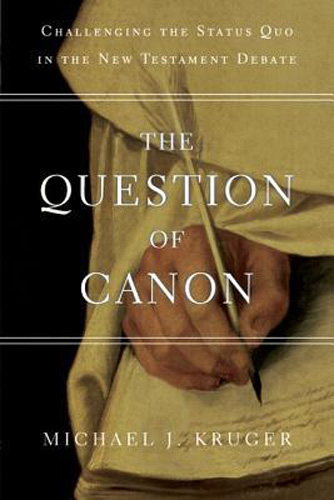Formation of the New Testament Canon
About This Class
This course explores the complexities and debates related to the recognition, authority, and understanding of the biblical canon, including modern controversies fueled by discoveries of apocryphal materials and the influence of fictional works like the Da Vinci Code. It emphasizes the critical differentiation between a book becoming canonical and its recognition as such, introduces various canonical models, offers insights into the concept of a "proper epistemic environment," probes the development of the early Christian canon, and provides a comprehensive analysis of Eusebius' four-fold division - all with the aim of deepening the understanding of the biblical canon's formation, its diverse interpretations, and ongoing debates.
Michael J Kruger

Lessons
- Through this lesson, you'll gain an understanding of the challenges and debates surrounding the canonicity of the Bible, learning about its misconceptions, and exploring the various definitions and theories that underline its recognition and authority.0% Complete
- 0% CompleteYou'll gain insight into the community, historical-critical, and Roman Catholic models of determining a book's canonicity, and grapple with debates surrounding 'self-authenticating authority' and the role of the Council of Trent in formalizing the Canon.0% Complete
- 0% CompleteYou gain an understanding of the historically-determined model and how it differs from the community-determined model, learning that the historical context of a book is pivotal in determining its canonicity. You explore two sub-categories of this model, reflecting on the problem of preconceived worldviews influencing canon selection and questioning the origins of canon authenticity criteria. The lesson prompts you to consider the lack of neutrality in historical investigations due to interpretive bias.0% Complete
- 0% CompleteBy engaging with this lesson, you gain a understanding of the Self-Authenticating Model, where the canon is authenticated by its own contents, ultimately providing its authority and maintaining the principles of Sola Scriptura.0% Complete
- 0% CompleteFrom this lesson, you will gain an understanding of the concept of 'defeaters' and their role in questioning our knowledge of the Bible. You will learn about the attributes that indicate a book is from God and how these are susceptible to 'defeaters'. You will also understand the harmony between the Old and New Testaments, including the shared narrative structure and symbolism.0% Complete
- 0% CompleteThis lesson covers the significance of the covenant concept in the New Testament, help you understand the Apostles' roles as agents of the New Covenant, recognize their authoritative teachings in both oral and written forms, and help you appreciate the reasons behind the shift from oral teachings to written documents.0% Complete
- 0% CompleteThis lesson reviews the concept of Canonical Core and Corporate Reception, noting the early establishment and widespread agreement on most New Testament books, learn about disputed canonical status of some texts, and differentiate between orthodox and canonical books.0% Complete
- 0% CompleteIn this lesson, you explore the formation of the early Christian canon, examining patristic citations, the role of Christian manuscripts, and the adoption of the codex, which shaped the Christian textual culture and pointed towards an early formation of the canon.0% Complete
- 0% CompleteThis lesson provides an in-depth understanding of the four-fold division of the canon in early Christianity and the content and reasons for the disputed books, underlining the fact that the core of the canon was firmly established from Christianity's inception.0% Complete
- 0% CompleteYou will learn about Eusebius's four-fold division of the canon, the content and context of disputed books, and the stability of the foundational canon in early Christianity.0% Complete
Class Resources
Recommended Books
The Question of Canon: Challenging the Status Quo in the New Testament Debate
Preaching Survey of the Year's Best Books for PreachersPreaching's Preacher's Guide to the Best Bible ReferenceDid the New Testament canon arise naturally...
